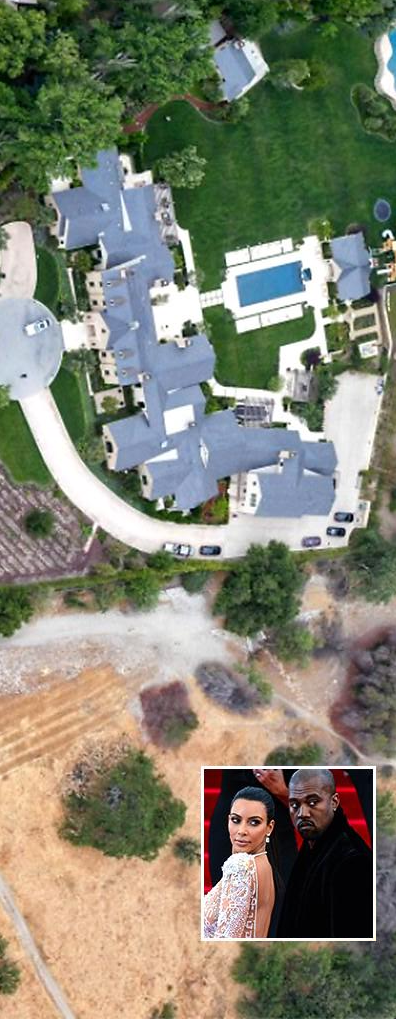Drought-shaming sheds light on heavy drinkers
 A new, ecologically-minded trend is emerging on the internet, as activists use digital means to shame wealthy water-wasters.
A new, ecologically-minded trend is emerging on the internet, as activists use digital means to shame wealthy water-wasters.
Social media users are taking aim at the lush green lawns of rich Californians, as the Golden State struggles through its fourth year of a devastating drought.
Class-conscious activists are using #droughtshaming to call out their profligate neighbours and celebrities too.
The New York Post says a number of big names are letting the tap run too long, including Kim Kardashian and Kanye West, Barbra Streisand, Jennifer Lopez, Jessica Simpson, Hugh Hefner and others.
“Landscape water use in California is about half of all water use. It’s inescapable that effective curtailment of water consumption, which is necessitated by this drought, is going to mean reduced outdoor water use,” Edward Osann, a senior policy analyst for the Natural Resources Defense Council’s water program, told reporters.
Earlier this month, California’s Water Resources Control Board unanimously approved emergency regulations that force some communities to cut back water usage by up to 36 percent, with heavy fines on the table for those who fail to meet the restrictions.
“I think it was done with an eye toward fairness and practicality. The areas with the highest consumption of water have the greatest opportunity to reduce that,” Osann said.
But the regulations do not apply to California’s agricultural sector, leading environmentalists to fear that this exemption could provide a loophole for wealthy homeowners, if their sprawling lawns include some sort of garden.
Meanwhile, a campaign has been launched to stop Nestlé Waters from bottling perfectly good water during the extended drought.
“While California is facing record drought conditions, it is unconscionable that Nestlé would continue to bottle the state’s precious water, export it, and sell it for profit,” a petition by the Courage Campaign reads.
“As a consumer and concerned citizen, I call on you to immediately stop Nestlé’s bottling operations in California.”
Nestlé claims it uses water “efficiently and effectively” because “people need to drink water."
“Closing our operations or reducing the amount of water we withdraw significantly won’t fix the drought,” Nestlé argues.
It is a common argument among high-capacity water-users that ending their particular activities will not have a big impact on supplies.
Clearly though, if they all made a moderate change, it would help.








 Print
Print